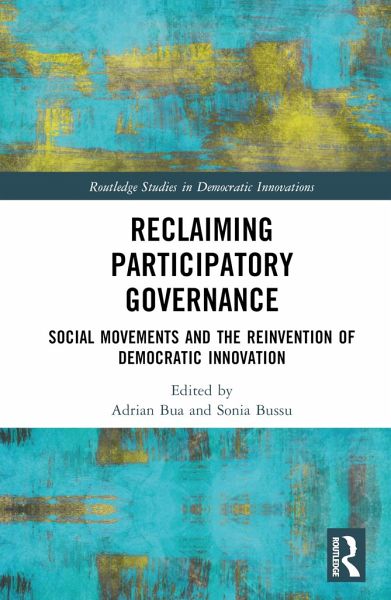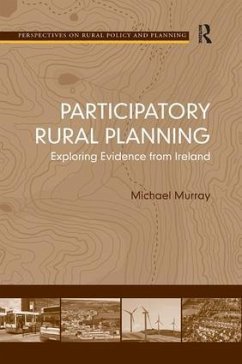
Reclaiming Participatory Governance
Social Movements and the Reinvention of Democratic Innovation
Herausgeber: Bua, Adrian; Bussu, Sonia
Versandkostenfrei!
Versandfertig in 1-2 Wochen
168,99 €
inkl. MwSt.
Weitere Ausgaben:

PAYBACK Punkte
84 °P sammeln!
Reclaiming Participatory Governance offers empirical and theoretical perspectives on how the relationship between social movements and state institutions is emerging and developing through new modes of participatory governance. One of the most interesting political developments of the past decade has been the adoption by social movements of strategies seeking to change political institutions through participatory governance. These strategies have flourished in a variety of contexts, from anti-austerity and pro-social justice protests in Spain, to movements demanding climate transition and race...
Reclaiming Participatory Governance offers empirical and theoretical perspectives on how the relationship between social movements and state institutions is emerging and developing through new modes of participatory governance. One of the most interesting political developments of the past decade has been the adoption by social movements of strategies seeking to change political institutions through participatory governance. These strategies have flourished in a variety of contexts, from anti-austerity and pro-social justice protests in Spain, to movements demanding climate transition and race equality in the UK and the USA, to constitutional reforms in Belgium and Iceland. The chief ambition and challenge of these new forms of participatory governance is to institutionalise the prefigurative politics and social justice values that inspired them in the first place, by mobilising the bureaucracy to respond to their claims for reforms and rights. The authors of this volume assess how participatory governance is being transformed and explore the impact of such changes, providing timely critical reflections on: the constraints imposed by cultural, economic and political power relations on these new empowered participatory spaces; the potential of this new "wave" of participatory democracy to reimagine the relationship between citizens and traditional institutions towards more radical democratic renewal; where and how these new democratisation efforts sit within the representative state; and how tensions between the different demands of lay citizens, organised civil society and public officials are being managed. This book will be an important resource for students and academics in political science, public administration and social policy, as well as activists, practitioners and policymakers interested in supporting innovative engagement for deeper social transformation.













